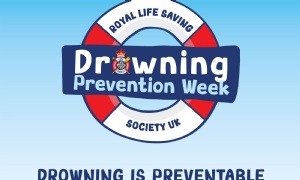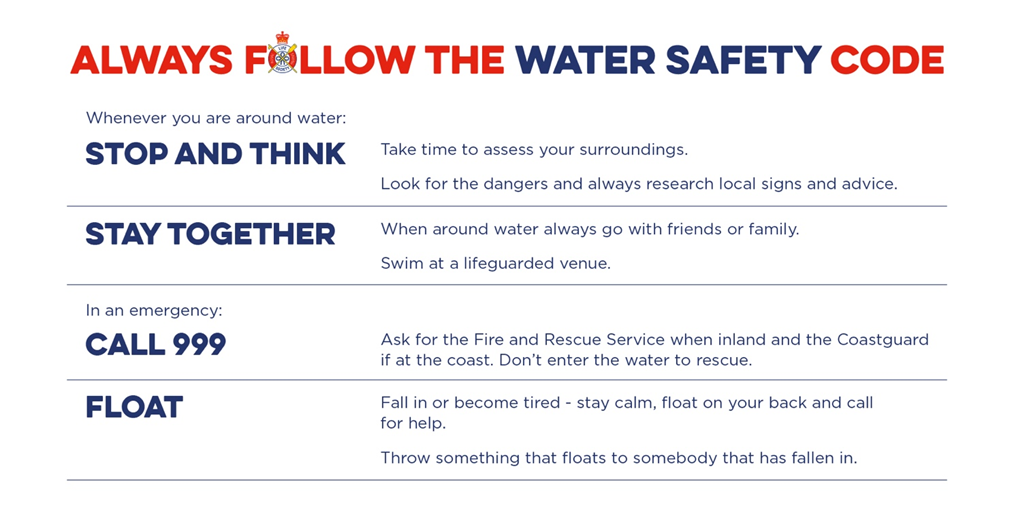Drowning is Preventable

Queen's Park High School is urging parents to make sure their children know how to stay safe and enjoy the water this summer.
Whether heading abroad this summer or opting for a staycation, the Royal Life Saving Society UK (RLSS UK), fears that families will head to beaches and inland water locations this summer, without considering the potential dangers, putting themselves and others at risk. Those of us who will be venturing abroad for their summer holiday, may find themselves using non-lifeguarded pools and therefore be at risk if they do not have the necessary water safety skills.
Figures indicate that around 25 per cent of primary pupils leave school unable to swim, and experts fear that as a result of the pandemic many young people lacking the ability to swim or self-rescue.
Drowning Prevention Week 2023
Queen's Park High School is supporting RLSS UK’s National Drowning Prevention Week campaign, this year running from 17th-24th June 2023. Drowning Prevention Week aims to equip everybody across the UK and Ireland with the skills and knowledge, to make the right decisions about water safety.
312 people on average accidentally drown in the UK and Ireland every year and many more suffer injury, sometimes life-changing, when they survive drowning.
As children (especially boys) enter their late teens, they become increasingly more likely to take risks, with more than 300 people accidentally drowning every year.
We are urging our Queen's Park families to get involved with the campaign and access the charity’s FREE online resources to enjoy water safely this Summer, and ensure their children have the skills to enjoy a lifetime of fun in the water.
Click on the tab below or visit www.rlss.org.uk to access the Charity’s free water safety resources:
The Royal Life Saving Society UK has issued the following advice:

The majority of drowning incidents can be prevented, especially with children. No family should ever have to go through the pain of losing a child through drowning. Make sure everyone is aware of the basic principles of water safety and help keep your families safe this summer.
In Open Water
- Check water sites for hazards, check the safest places to swim and always read the signs. Take time to check the depth and water flow of open water sites
- Swim with any children in your care – it’s more fun and you can keep them close and safe
- On beaches, check when the tide will be high and low, and make sure that you won’t be cut off from the beach exit by the rising tide. Also, learn to identify dangerous rip-currents
- Inflatable dinghies or lilos are a well-known hazard – each year there are drownings as people on inflatables are blown out to sea. Do not use them in open water
- Do not swim near to or dive from rocks, piers, breakwater or coral
- Swim parallel to the beach and close to the shore
- Cold Water is a well-known factor in a number of incidents – always try to play in water where there is a lifeguard or supervision, if not stay close to the shore and enter slowly
At Home
- Empty paddling pools as soon as they have been used. Always turn paddling pools upside down once empty
- Always supervise your children around water, including bath time (never leave children unattended)
- Always use gates, fences and locks to prevent children from gaining access to pools of water
- Securely cover all water storage tanks and drains
Further Resources
| Videos & real life stories | website link |









